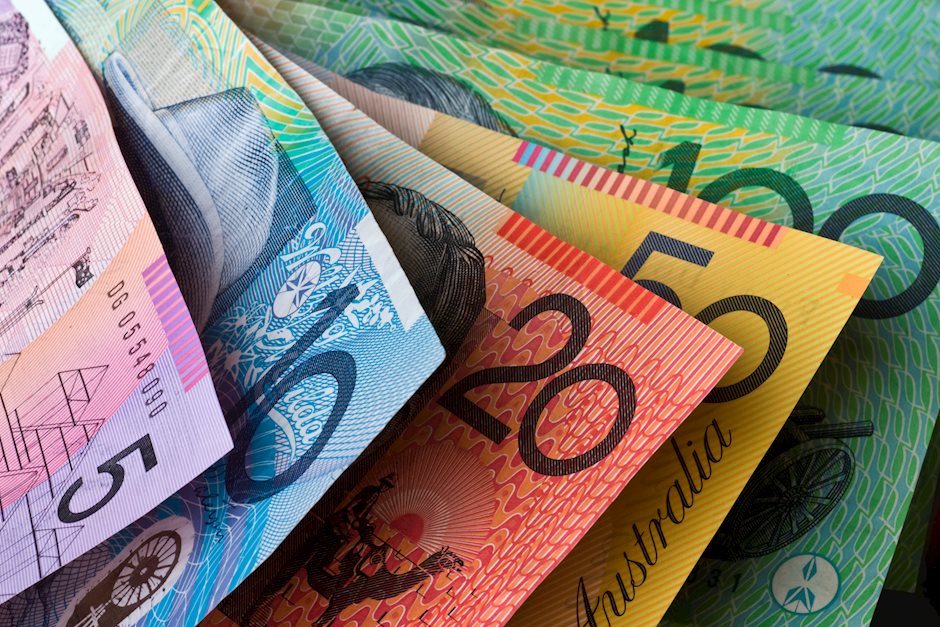Economic view of the Australian dollar

As fears that a recession is just around the corner for the US, some economists are warning that Australia could follow suit.
Some, however, remain bullish on the Australian economy due to high household savings, strong commodity exports, accommodative government stimulus and a robust pipeline of residential building constructions.
Emerging from pandemic-induced recession
The Australian economy recorded its worst single quarterly economic contraction since the 1930s Great Depression in the second quarter of 2020. Like many countries, the economy was hit hard by COVID-19 restrictions in the first half of 2020.
The country emerged from that recession in the third quarter of 2020. Australia was among a few that managed to bounce back quickly as the government relaxed restrictions, fueling a recovery in consumption. Household spending contributed the most to the overall recovery as the easing of lockdown measures unleashed pent-up consumer demand.
Delta derails recovery
The economy continued on its recovery path until the third quarter of 2021 when Australia’s GDP contracted due to measures imposed to prevent the spread of the Delta variant of COVID-19. Household spending was hurt by local governments’ move to reimpose curbs.
Australia rebounded in the fourth quarter as Delta-related lockdowns were lifted towards the end of 2021. "Consumers enthusiastically returned to discretionary spending following the end of delta-related lockdowns,” Australia’s statistics official Ben James said at the time.
The Australian economy has swung from short periods of downturn to quick recoveries as soon as governments lift border restrictions and other curbs after containing local outbreaks.
But as global inflation shocks and interest rate hikes by other central banks prompted the Reserve Bank of Australia to also take a hawkish approach to tame inflation, many experts are warning that the country could face another economic downturn.
Brace for more tightening
Earlier this month, the RBA raised its official cash rate by 50 basis points to 0.85%, surprising the market that had predicted the rate hike at 25 or 50 bp.
RBA Governor Philip Lowe last week warned of more tightening in the months to come as the monetary policy board believes the current rate is still “very low for an economy with low unemployment and that is experiencing high inflation.”
Australia’s unemployment rate remained at a record low of 3.9% in May, while the country’s first-quarter inflation rate accelerated to a 20-year high of 5.1% from 3.5% in the fourth quarter of last year.
Recession likely to happen
As commodity prices continue to skyrocket and as the central bank pursues a hawkish stance, BetaShares Chief Economist David Bassanese said there is a 40% chance that Australia could enter a recession within the next 12 months.
“When the US sneezes, we catch a cold. The local share market will not be immune to further Wall Street weakness, especially as we also face uncomfortably high inflation and likely aggressive RBA rates hikes in coming months,” Bassanese said in a recent note.
The economist noted that the local stock market will likely follow the US into bear market territory in the coming months.
AMP Capital economist Diana Mousina last week said the high inflation environment is adding to weakness in consumer spending. AMP Capital lowered its GDP growth expectation for Australia this year to 2.7% from 4%.
Mousina, however, said the strength in residents’ accumulated savings and supportive fiscal and monetary stimulus will likely keep the country’s economy from collapsing.
“A lot of positives”
This was echoed by RBA's Lowe last week when he played down worries over a looming recession in Australia, saying he doesn’t see a recession on the horizon.
"Australia has a lot of positives… But if the last two years have taught us anything, you can't rule anything out,” the RBA governor said.
Author

Mark O’Donnell
Blackbull Markets Limited
Mark O’Donnell is a Research Analyst with BlackBull Markets in Auckland, New Zealand.

















